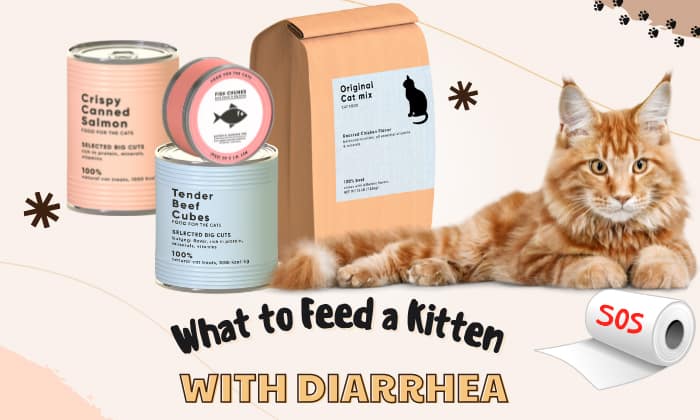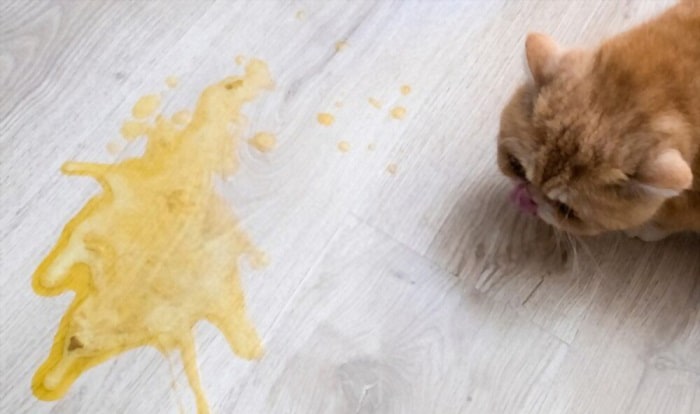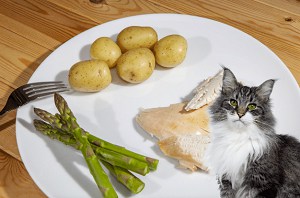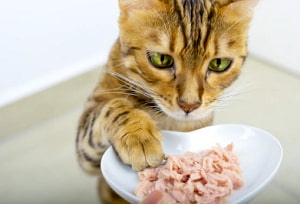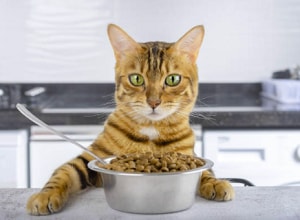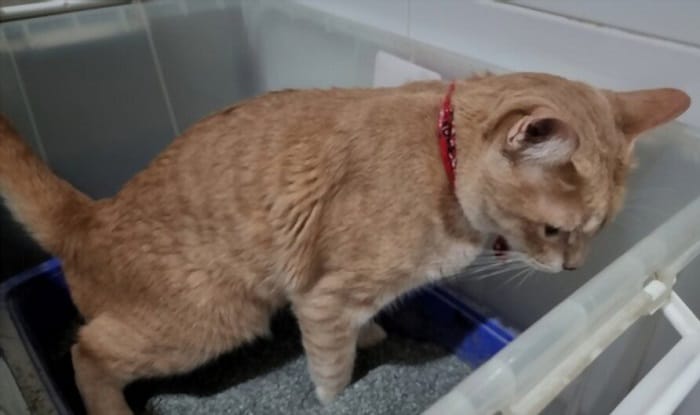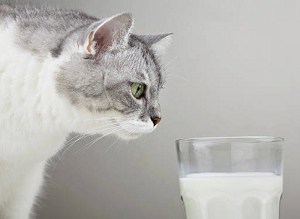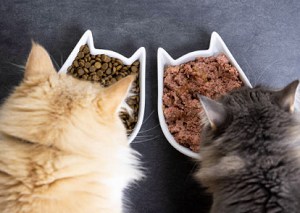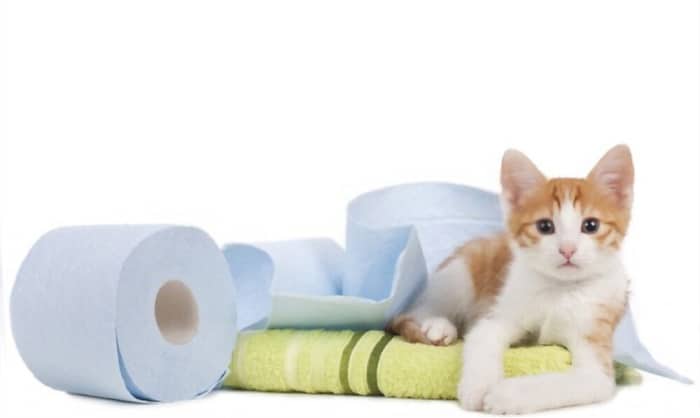It is unpleasant to have a kitten with soft stool from diarrhea. Aside from cleaning up the stool, you may need to pay expensive vet fees and take frequent hospital trips. When dealing with this kind of circumstance, it’s crucial for cat owners to take their baby kitten’s diet and food consumption into account.
So what to feed a kitten with diarrhea? The answer is food high in fiber, probiotics, as well as other nutrients like protein.
Table of Contents
What to Give a Kitten With Diarrhea?
We have made a list of kitten diarrhea food to help your cat avoid dehydration and nutritional deficiencies.
1. Bland Diet
You should withhold food from a kitten with diarrhea and vomiting. Then, try these bland diet recommendations. However, if your cat doesn’t puke food out, there’s no need for fasting. If the condition doesn’t improve after dietary changes, contact a vet.
- Withhold food from your cat for 12 hours. If your kitten has diarrhea but acts normal, consider giving them a bland diet.
- The diet may include a high level of pumpkin ingredients and a permissible low level of fat.
- Some other foods to try out are cooked ground turkey and sweet potato, both of which may be combined with pumpkin.
An alternative to this bland diet is a mixture of rice and cooked chicken or ground beef with the addition of fiber like Metamucil as a home remedy.
Fiber helps cats with diarrhea by hardening their stools and bringing their bodies back into balance, or homeostasis. Additionally, it controls how much water is present in their intestines, which might stop diarrhea from happening.
- Feed your kitten up to four tablespoons of this replacement diet every day. Start with one tablespoon only or even half a teaspoon mixed into her bland meal.
- Give your cat small quantities of this diet every three to four hours.
- It should take at most three days on a bland diet to know if the food adjustment helps. If it doesn’t, it’s time to consult a professional.
2. Wet food
Vets recommend the following wet food for kittens with diarrhea because they contain a reasonable amount of protein, fiber, and fat:
- Smalls Human-Grade Fresh Pulled Bird Recipe
- Royal Canin Mother & Babycat Ultra-Soft Mousse in Sauce
- Wellness Complete Health Kitten Whitefish & Tuna Cat Food
- Blue Buffalo Basics LID Kitten Turkey & Potato Wet Cat Food
3. Dry food
The following are the dry kitten food recommendations for sensitive stomach of your cat. These foods are rich in protein, and some contain real vegetables and fruits.
- Nutro Kitten Dry Cat Food
- Hill’s Science Kitten Dry Cat Food
- ORIJEN Kitten Dry Food
- Royal Canin Digestive Care
Gastrointestinal Cat Food
- Purina En Gastroenteric Food
- Pro Plan Veterinary Diets En Gastrointestinal Dry Cat Food
- Pro Plan Veterinary Diets En Gastrointestinal Wet Cat Food
- Royal Canin Veterinary Diet Gastrointestinal Moderate Calorie Canned Cat Food
- Royal Canin Sensitive Digestion dry cat food
Causes of Diarrhea
There are a number of causes for your kitten’s diarrhea. The main reasons are as follows:
- Milk
This is one of the main causes of the runny kitten poop that your 8 week old kitten is producing. Once your kitten reaches the age of four weeks, you can start using kitten milk substitutes instead of cow milk.
Any kitten food can be mixed with this replacer. The Nutri-Vet Kitten Milk Replacement Powder is one of the best milk replacers overall.
- Dietary modification
Any change in diet causes temporary diarrhea in cats. This could happen if you change your kitten’s main meal, nutritional supplements, or medication abruptly.
As a result, adjusting cats’ diets on a regular basis is not recommended because their system will not adapt to an inconsistent diet. This is especially true for kittens with sensitive GI tracts. When changing your kitten’s diet, it is critical to consult with your veterinarian.
- Overfeeding. This is mainly the case with a newborn kitten.
- Any food allergies
- Toxic substances that your kitten might have eaten accidentally
- Side effects of medications
- Internal parasites like tapeworms and roundworms – These parasites wreak havoc on a kitten’s digestive lining. This is why your kitten should be dewormed from the age of two weeks onwards.
- Bacterial infections such as salmonella and campylobacter and viruses like panleukopenia and feline immunodeficiency virus.
- Environmental stress – This is especially true if you have recently moved to a new home with your cat or have acquired a new pet.
Treatment for Kitten Diarrhea
The following are some treatment options for your diarrheal cat:
- Instead of a bland diet or gastrointestinal kitten food, your vet may prescribe antibiotics to deal with bacteria, antiparasitic meds if worms are the problem, and schedule an X-ray, biopsy, etc. to diagnose your cat.
- Make sure your kitten is hydrated by giving them rice water. This aids digestion and relieves bloating. You could also use chicken broth or plain water.
- Supplement with probiotics. This will assist your cat in maintaining a healthy immune system. You can give Dr. Bill’s Pet Nutrition Feline Digestive Support, Pet Naturals of Vermont Daily Probiotics for Cats, or Pet Ultimates Probiotics for Cats a try.
Frequently Asked Questions
How often to feed a kitten with diarrhea?
If your kitten has diarrhea but seems fine, hold off on taking them to the vet or a few days. Try the bland diet we described above with a feeding frequency of 3 to 6 times per day.
Is wet or dry food better for kittens with diarrhea?
Because the moisture in wet food may be the cause of your kitten’s diarrhea, it is best to feed your cat dry food. Furthermore, dry food aids in the cleaning of cat teeth, which may help to prevent any dental problems from developing.
How to stop diarrhea in a kitten?
You could begin by giving your kitten a bland diet and any of the other treatments mentioned above. If diarrhea persists, you should consult a veterinarian, especially if it lasts for several days and there is some blood in the stool.
What does kitten yellow diarrhea mean?
A yellow stool could indicate zinc poisoning, anemia, or liver disease, all serious conditions. You should contact a veterinarian right away.
Conclusion
If your 10 week old kitten has diarrhea, it’s natural to wonder, “What to feed a kitten with diarrhea?” In this article, we have listed food recommendations that are available not only in the UK but also around the world, to help relieve your kitten’s discomfort.
If diarrhea persists after attempting all of the treatments listed, it is best to contact your veterinarian for assistance.

I am Amy Sawy, a Doctor of Veterinary Medicine (DVM) graduate from the University of Kansas. y husband, Dr. Plummer, and I own a veterinary clinic in Phillipsburg, Kansas. In addition to my professional background, I am a devoted pet owner myself, with a household that includes dogs, rodents, and most notably, cats – a total of five felines in my home.
In 2020, I joined an organization as a professional writer, leveraging my experience and collaborating with my team to deliver the most valuable information for your cat’s care.


